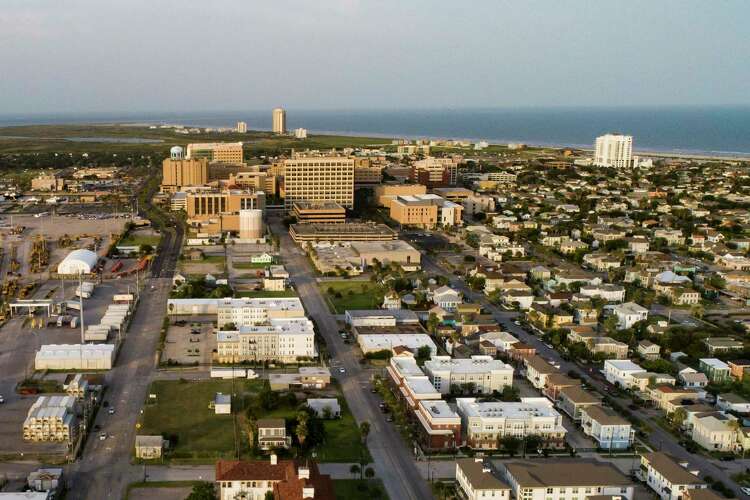UTMB Vaccine Project Amid $500M mRNA Cut by RFK Jr.

Impact of Federal Policy Shift on mRNA Vaccine Research
The U.S. Department of Health and Human Services (HHS) has made a significant decision to "wind down" approximately $500 million in contracts focused on mRNA technology. This move is expected to affect 22 projects funded through the Biomedical Advanced Research and Development Authority (BARDA). Among these projects is a collaboration between the University of Texas Medical Branch (UTMB) and Moderna, a biotechnology company known for its groundbreaking work on the COVID-19 vaccine.
While neither UTMB nor Moderna has confirmed the specifics of the project or the amount of funding at risk, a spokesperson for UTMB stated that the university is currently evaluating the implications of this shift in federal priorities. The announcement has raised concerns among researchers and experts who believe that this decision could have far-reaching consequences for future public health initiatives.
A Shift in Federal Priorities
The initial announcement suggested that funding for UTMB and Moderna's bird flu vaccine development was being canceled. However, HHS later clarified that the work would be "restructured." In 2023, UTMB and Moderna received a three-year grant worth up to $24.7 million from BARDA and the U.S. Department of Defense. The project aimed to develop vaccines against Ebola and other viruses, with research conducted at the Sealy Institute of Vaccine Sciences at UTMB.
This decision has sparked concern among scientists, including Dr. Peter Hotez, co-director of the Center for Vaccine Development at Texas Children's Hospital and dean of the National School of Tropical Medicine at Baylor College of Medicine. He emphasized that this shift in focus could undermine trust in a technology that has been crucial in combating the COVID-19 pandemic and other diseases.
Misinformation and Public Health
Health Secretary Robert F. Kennedy Jr., known for his history of promoting vaccine misinformation, has been critical of mRNA technology. He has previously claimed that mRNA vaccines are ineffective against respiratory illnesses like COVID-19 and the flu. These claims contradict scientific evidence, which consistently shows that mRNA vaccines are safe and effective. The U.S. Centers for Disease Control and Prevention (CDC) estimates that these vaccines saved over 200,000 lives and prevented more than 1.5 million hospitalizations in the first 10 months after their approval.
Kennedy also claimed that a single mutation of a virus could render an mRNA vaccine ineffective. However, medical experts have pointed out that vaccines are regularly updated to address new variants, and older versions still offer protection against newer strains. As Hotez explained, "The protection against infection diminishes somewhat, so it's not as high. But it's still really good."
Advantages of mRNA Technology
mRNA vaccines work by using messenger RNA produced in a lab to train the immune system to recognize and fight off a virus. One of the key advantages of this technology is its ability to be developed and updated quickly compared to traditional vaccines. This rapid response capability allows public health officials to address emerging threats more effectively.
"When you're going into a new epidemic, you can make mRNA pretty quickly," Hotez said. "In terms of stabilizing a new epidemic situation, it's a hard technology to beat."
Criticism of RFK Jr.'s Policies
Kennedy's approach to vaccine policies has drawn widespread criticism from medical experts. Since being confirmed as health secretary, he has taken several controversial steps, including firing all 17 members of a committee that makes vaccine recommendations to the CDC and announcing that annual COVID-19 shots would no longer be recommended for children and pregnant women.
He has also downplayed the severity of measles, characterizing vaccination as a personal choice during Texas' worst measles outbreak in over 30 years. These actions have raised concerns about the potential impact on public health and the broader trust in scientific consensus.
Long-Term Implications
The decision to "wind down" mRNA vaccine development projects is part of a broader pattern of policy shifts that have affected institutions like UTMB. The university previously lost over $19 million in research grants as part of the Trump administration's efforts to reduce what it called "wasteful" spending on certain medical research. These cuts included $14 million for a project focused on developing drugs to combat future pandemics.
UTMB has struggled to find alternative funding sources to continue these projects, leading to the departure of several scientists due to uncertainty. This highlights the challenges faced by academic and research institutions when federal support is abruptly withdrawn.
Post a Comment for "UTMB Vaccine Project Amid $500M mRNA Cut by RFK Jr."
Post a Comment